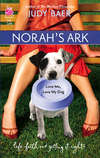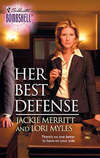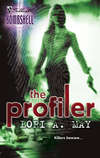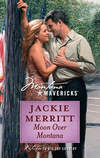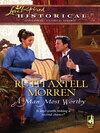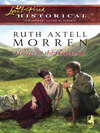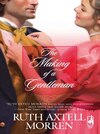Kitabı oku: «Wild Rose», sayfa 3
Glancing outside, he saw the sun shimmering off the blue Atlantic. Suddenly he felt a desire to plunge into it. He needed the cold, clear water to wash his mind of all the debate Nate’s visit had threatened to resurrect.
Grabbing a towel, he headed outside in his drawers and undervest across the remaining knee-high grass of his back lawn, down the rickety wooden stairs to the beach below. He flung the towel onto the round stones, stripped off the undervest, and began walking toward the surf. Immediately, he had to slacken his pace, his feet finding it hard going over the stones. They were as round and smooth as ostrich eggs, originally a slate hue but now bleached almost white by the sun.
When he first entered the water, the cold almost made him turn back, and as he went deeper, his ankles and feet grew numb. The rubbery rockweed covering the stones beneath the surf made walking precarious. When the water reached his thighs, Caleb braced himself for the impact and plunged in.
He swam straight out against the tide, then, turning, he veered to the side, swimming parallel to the shore, up and back, until his body recovered from the shock of the icy water and the exertion made him impervious to the cold.
He emerged from the water, feeling a release from the past. Thoughts of Arabella’s impending wedding could no longer threaten the equilibrium he’d achieved for himself.
Equilibrium? Since when? Certainly not since coming to Haven’s End, when he’d tried to drown his sorrows in drink. As he rubbed himself vigorously with the towel, he tried to pinpoint the moment he’d begun feeling a semblance of peace.
Since beginning the garden.
A gust of breeze raised the gooseflesh on his skin, so he turned his feet away from the cove and back toward the stairs.
After shaving and dressing, he headed up the road to his neighbor’s. She’d disappeared the day Nate had arrived, and Caleb hadn’t seen her since.
He proceeded in a leisurely way up the slope toward her place. A row of hackmatack trees, their sparse needle-clad branches interlocking, created a windbreak between his land and hers. A thicket of low-growing wild rosebushes clustered along the edge of the road, but they had not yet blossomed. The sound of the wind was constant, offering today a soft, steady sifting through the fir trees.
Miss Patterson’s front yard was edged by a crumbling stone wall, which was almost buried in wild rose and blackberry vines. Beyond this barrier, the yard was neat, the grass short and green, with a profusion of flowers blossoming around the well and at a window box. The house itself was a small, weathered shingle-box, surely not containing more than one room.
The first thing that greeted Caleb was the loud bark of a dog. As soon as he’d stepped onto the path of crushed, bleached white clamshells that led to the front door, his neighbor’s large, black dog bounded toward him. He was a black Labrador with enough other traits to deny any purity in his lineage. An old wound crumpled one ear, and an ugly pink scar disfigured the fur of one of its haunches.
Stopping a mere foot or so from Caleb, the dog kept up his barking. Caleb stood still, speaking to the dog in soft tones. Each time Caleb attempted to take a step forward, the dog dodged in front of him, his black eyes trained on Caleb.
Geneva walked around the side of the house, an empty pail swinging from each hand, heading toward the well. She stopped short at seeing Captain Caleb. What was he doing here? And Jake!
Recovering, she rushed toward the dog. “Down, Jake. That’s enough! I said hush!” When the dog continued barking and running back and forth, Geneva turned to Caleb. “Don’t pay him no mind. He won’t hurt you.”
The captain looked dubious. “Are you sure he knows that?”
“He just acts fierce. You won’t hurt the captain, will you, boy?” She bent over and rubbed Jake’s neck, seeking to ease the tension she felt in his muscles.
Caleb took a few cautious steps toward Jake and held out his hand for the dog’s inspection. “Your mistress is right. I won’t hurt you.” Jake would have none of it, but continued his incessant barking.
“He don’t take easily to strangers,” she explained, wanting so much for Jake to take to the captain. Her fingers continued running down the dog’s black hair in long, soothing strokes. “He had some bad times ’fore I got him, and he’s still not over them—are you, Jake?” She bent her head over her pet.
She could feel the captain watching the rhythm of her fingers down the dog’s haunches and she struggled to maintain their steadiness.
“Did his owner neglect him?” he asked gently.
Relieved that his focus was on the dog, she answered with a short laugh. “He probably wishes he had. No, his owner liked to take a stick to him and beat him ’til he could hardly stand.” She gave him a sharp look. “The man liked to drink.”
He didn’t react to her pointed reference, but said, “You ran off the other day.”
With a final pat, she straightened and picked up her buckets. “I didn’t ‘run off.’” She threw the words over her shoulder as she walked toward the well. “You had company. Figured the best thing I could do was stay out of your way.”
She set the pails down on the wet slats and began pumping the handle. When she’d filled each, she took them up and headed back around the house.
“Here, let me.” The captain reached her, ignoring Jake’s immediate menacing bark, to grab one of the pails.
Surprised at the gesture, she didn’t let go of the handle, but gave it a tug toward herself, sloshing water over the side of the rim. Jake immediately stood beside them, giving the captain a low-throated growl.
“Hush, Jake.” Geneva took the bucket from the captain’s loosened fingers. “Don’t worry, Cap’n, I got it. I’m just taking it to the garden. It hasn’t rained in a few days. Soil’s getting dry.” She heard the sentences coming out one atop the other in an effort to overcome her confusion at his gentlemanly gesture. Why did he treat her like a lady? Didn’t he see she was more like a man than a woman?
When she realized he hadn’t followed her, she had to swallow a sense of disappointment. She began watering her plants and was startled again at the sound of a whistle behind her.
The captain stood staring at her garden, a bucket in his hand. “Everything looks twice as high as in my garden.”
She shrugged, hiding her pleasure. “Yours will catch up.”
“Where do you want the water?” He held up the bucket.
She blinked. “You don’t have to help me with this.”
“You’ve helped me. And I’m sure to need your help again.”
For a moment she looked at him, then finally turned away. “Suit yourself.”
He took the bucket down another row of plants, watching and listening as she explained which way she watered what, taking care not to wet the leaves of some plants, not worrying about sloshing others, and crouching low to inspect the underside of a leaf here and there, looking for hungry caterpillars.
“By the way,” he said when they’d each emptied their last bucketful, “you said something about seeds the other day. Do you still have any to spare?”
“You still want ’em?” she asked doubtfully.
The captain nodded. “You told me to plant something every week, didn’t you?”
“Yep. I just figured since then—” She shook her head, falling silent.
“You figured what?”
She could feel a flush covering her cheeks. “Nothin’—you having company and all.”
“Nate? He just stayed three nights.”
She turned away, saying with a shrug, “Thought you’d be heading back to Boston by now.”
Leaving him, she headed toward the lean-to attached to her house. She unlatched the door and entered its shadowy interior. Firewood lined most of the walls, floor to ceiling. The air was redolent with the spicy scent of drying spruce and balsam. She turned to the shelf holding gardening implements and took down a jar. From it she extracted a folded paper. Inside it were minute specks. She refolded the paper and handed it to the captain, who had followed her into the shed.
“You can bring me back what you don’t use.”
He nodded absently and took the paper. “What did you mean—you thought I would be returning to Boston the first chance I got?”
She continued uncorking jars and extracting folded packets of paper. “It’s where you’re from. Didn’t think you’d stick it out here if you didn’t have to.”
The captain thrust out his hand to stop the motion of her hand on a jar. “I chose to come here. I didn’t have to. Do you understand the difference?”
She raised startled eyes to him. For a second their gazes met and held. The sunlight sliced through the open doorway, cutting a path across her face, leaving her feeling exposed, yet helpless to look away. His eyes traveled across her face, almost as if he were seeing her for the first time.
“I jus’ thought—I mean—I didn’t think anyone’d come here to live. Not from Boston, anyway. Ain’t none of my business, anyhow.”
His hand still held her wrist. She jerked it away, and he immediately let it go.
He looked at the seed papers in his other hand. “How do I tell what is what?”
Again he’d caught her off guard. “Uh, I jus’ know by looking at ’em.” She unfolded one and said, “This here’s lettuce. It’ll grow quick. You should get enough through the summer if you plant some now, and then again in a week or so.”
“I should write the names of each on the papers.”
She bit her lip. “Uh, sure. I don’t have a pencil with me.”
He took one from his breast pocket. “Here.”
She looked at the pencil distrustfully. “You write. I—I’ll tell you what they are.”
“Good enough.” He unfolded the first paper and showed her. Then he refolded it and wrote the name she gave him on the paper. They continued until they’d labeled all the packets, though she gave him only the seeds she thought he should plant.
When they finished, he thanked her and left. She watched him walk back down the path to the road. Shame engulfed her.
What a fool she felt, not even being able to do so simple a task as write down the names of the seeds.
Chapter Three
Caleb walked down the dirt road that descended into the village. He’d hiked the three miles into town from the Point, enjoying the droplets of mist on his face the entire way, and now his clothes and hair felt damp.
Gradually the number of white clapboard houses increased until he was in the center of town, which consisted of a post office, a small store, a newly opened hotel, and a few warehouses along the three piers jutting out into the harbor.
Caleb entered Mr. Watson’s store and carefully shut the door behind him. He was glad to be out of the fog. The woodstove radiated heat throughout the store’s interior. A group of men sat around it, their eyes turned to him.
He nodded to them before turning to the storekeeper. “Afternoon.”
“Afternoon, Captain,” Mr. Watson answered.
Caleb ventured in a few feet. One woman looked at him over some bolts of fabric spread out before her. He removed his hat, acknowledging her. With a quick little duck of her head, she turned her attention back to the calico prints.
The men leaning back in their chairs by the potbellied stove continued eyeing him with undisguised interest, their boots propped against the fender of the stove. Although none of the men said a word, their mouths weren’t still. Two moved in rhythm working over plugs of tobacco and the third sucked on the stem of a pipe.
Caleb gave his list to Mr. Watson.
“Good summah we’ve been havin’ up until today,” one man in bib overalls commented.
“Yup,” another answered, his plump fingers interlaced atop his stomach. “I seen summahs the sun didn’t come out atall.”
“Was gettin’ a bit dry for the plantin’, though,” Mr. Watson put in from across the room.
“I seen you got a garden started down at the Point.” One of the three by the stove turned his light blue eyes on Caleb. He stood out from the other two by his neater appearance. His red beard was trimmed and his hair slicked back. He wore a suit and string tie in contrast to the others’ overalls and open collars. “It’s been quite a few yeahs since anybody’s tried to grow anything up theah.”
Caleb nodded, wondering when anybody had been by his place to notice his garden.
“Didn’t evah get your house finished, did ya?” the red-bearded man asked when Caleb didn’t volunteer any more information.
“No.” Caleb moved to examine the fishhooks at one end of the store. “But it’s fine for myself.”
“Ain’t too lonely for ya, after Boston?” one of the men in overalls asked from around his pipe.
Caleb shook his head without offering any comment.
“You could always knock on your neighbah’s door if you’re hankerin’ aftah some company,” the man with plump fingers laced atop his belly suggested. He seemed the boldest of the three, if the angle of his tilted chair was any indication.
The other two chuckled. “Hankerin’ after a bullet in his chest, you mean,” Bib Overalls put in.
“’Less, o’course, she was particularly ornery that mornin’ and aimed lowah,” Red Beard added, punctuating his remark with a well-aimed stream of tobacco juice at the spittoon.
All three men, as well as Mr. Watson, laughed at the implication.
“First he’d have to get past Jake,” Bib Overalls warned.
“Ain’t as if no one around here hasn’t tried to get past ol’ Jake.” Plump Fingers angled a sly look at Red Beard. “Remembah the time Elijah tried to sneak into her shack after dark? Wasn’t long aftah her pa passed on.” The others nodded, chuckling at the story to come. “Came back out in short ordah, a hole shot clean through his straw hat. We ribbed him some about that hat.” Plump Fingers slapped his knee, and the others laughed at the memory.
“I think ol’ Elijah learned his lesson,” Red Beard said with a nod of his head, shifting the tobacco from one side of his mouth to the other.
“I’ll wager not everyone’s learned his lesson.” Plump Fingers lifted his sandy-haired fingers and stared at them, then looked across at Red Beard.
“I ain’t heard o’ no man who’s snuck past ol’ Jake at night, though it ain’t been for lack of wantin’,” Red Beard answered placidly, but with a gleam in his eyes that testified of his own desires in that direction.
“Gotta be careful o’ Ginny. Her ol’ man had a mean streak a mile wide and I think she inherited a good portion of it,” Mr. Watson explained to Caleb.
“She probably needs it, by the sounds of things,” Caleb said quietly, looking at the three men around the stove as he spoke.
All three chairs stopped rocking and hung tilted in midair as the men stared at Caleb. He could hear the murmur of the lady and Mr. Watson behind him die down.
Bib Overalls’ chair was the first to resume its rocking. “I think Genevar’s just waitin’ for someone who’s man enough to tame her,” he said, pointing his pipe first at Red Beard and then at Caleb. “What do you think, Cap’n?”
Red Beard’s smile had something nasty in it. “The cap’n has already lost one good woman. Just think, if he was to get turned down by Salt Fish Ginny, how’d he be able to lift his head up in public?” He slapped his knee and chortled. The other two men laughed more guardedly, awaiting Caleb’s reaction.
“It’s been my experience that the more a man boasts about his conquests, the less they exist in truth,” Caleb commented, leaning his back against the counter.
All the men except the red-bearded one laughed heartily.
When their laughter subsided, Mr. Watson smiled. “We’ve got some fresh eggs. Would you like me to add a dozen to your order?” he asked Caleb.
Caleb turned back toward the shopkeeper. “Half a dozen will do.”
“It’ll cost you more that way. Two bits a dozen, but fifteen cents for half.”
“I’ll take the half,” Caleb repeated.
When he faced the room at large again, he discovered the topic of Miss Patterson was by no means exhausted.
“You mustn’t blame Geneva for the way she’s turned out,” the woman from the other end of the counter piped up. “She used to be black and blue from the beatings her pa give her. It’s no wonder she’s unfriendly.”
Deciding he’d had enough village gossip, Caleb moved away, hoping that would end the subject. Looking at several stacks of denim overalls, he began to finger through them until his order was filled.
“Those are fine quality denim. Just the thing for gardenin’. Is there a particular size you’d like to look at?” Mr. Watson came to stand behind the stacks of trousers.
“Is my order ready?”
He watched the friendly expectancy on the shopkeeper’s face turn to surprise and end in frosty politeness. “Yes, of course. Is there anything else you be needin’ today?”
Caleb shook his head and walked back to the center counter.
“The way ol’ Jeb Patterson kept her out of school, it was disgraceful,” the woman said. “We tried to reason with him, but anytime anybody would come by, he’d wave that shotgun at us from the doorway, and all his hunting dogs would bark something ferocious. There was nothing to do but leave him to his own devices.”
Caleb watched Mr. Watson add the column of numbers on a piece of paper. He didn’t want to hear anything more about Geneva Patterson. The men’s conversation sickened him. He’d been curious about her. He’d realized the other day that she wasn’t as self-assured as she’d first appeared to him. She was also kinder-hearted than her gruff manner suggested. It was evident in her manner toward her dog.
He’d been intrigued about why she dressed like a man and hid any feminine charms she might possess. Now he understood why.
“And her mother, poor woman, Canuck—”
“Half-breed,” Bib Overalls put in. “Woman could barely speak English.”
Caleb ignored their talk. He paid his bill, aware of the silence that had returned to the store, knowing everyone was just waiting for him to leave so they could begin commenting on his past.
He put his hat back on at the door, tipping it to the general company. “Good day.” He heard the door bang behind him as he walked down the worn steps.
After he had arrived home and put everything away, he felt at loose ends. The fog had lifted but the day remained cool and overcast. Without a conscious decision, he found himself directing his feet back up the hill toward Miss Patterson’s. He’d seen her working in her front yard when he’d passed. He had no valid reason for visiting, but something drew him.
Jake started barking the moment Caleb came in sight. As he came up the path, the dog ran up and down alongside him.
“Hello, boy. Whatcha got there?” He examined the old buoy Jake had brought him.
Miss Patterson, her back toward him, was sawing a board on a sawhorse. Caleb went up to her and pushed her gently aside. “Here, let me do that for you.”
She jumped when she felt his touch. “Hey, what’re you doin’?” she demanded when his hand touched the handle of the saw.
“I can finish it for you.”
She scowled. “I can do it fine myself.”
“Give me that,” he insisted, trying to pry the handle away from her. Her fingers only tightened on the handle as she attempted to continue the sawing motion. They began a brief tug-of-war for the saw, but when Caleb realized how ludicrous it was, he let go and stepped back.
“Did anyone ever tell you you’re about as stubborn as a mule?”
“When they bother to talk to me, yes,” she answered shortly above the rasp of the saw.
At the words, Caleb felt a curious link with her. He knew how it felt to be singled out. He shook his head, never having imagined in Boston that one day he’d find something in common with a person such as Geneva Patterson. Taciturn, ornery, proud…
Caleb thought about what he’d heard at the store. He found it hard to fathom the men’s salacious gossip. If there was a spark of femininity in Miss Geneva Patterson, he couldn’t see it. He stepped back and watched her finish sawing the board. Without a word she carried it past him, to the front stoop, where she’d already pried off an old plank.
Carefully she placed the new board over the hole and lined it up with the rest of the steps. She took some nails from a piece of paper and picked up a hammer from the grass. As usual she was wearing that beat-up old hat, so Caleb couldn’t see much of her profile. Her eyes were fine, really, not black as he’d supposed, but deep brown, as he’d seen the other day in the light, like polished mahogany, and fringed with inky black lashes. They were about the only feminine feature she possessed, besides the braid that fell down her back like a black rope.
She had on her habitual flannel shirt, buttoned to the very top. His gaze wandered farther down. The bib of her overalls curved over her bosom. The baggy pants didn’t reveal much of her legs; he imagined they must be long and slim, like her arms and fingers. He remembered her gentle strokes over Jake’s fur.
The only woman he could really compare her to was Arabella, and the two were so different it hardly seemed a fair comparison. Caleb watched Miss Patterson’s long fingers position a nail and grip the hammer. Whack!
When she’d pounded in the first nail, she suddenly took off her hat and wiped her forehead with a sleeve. She didn’t put the hat back on, but proceeded to line up another nail on the board.
Her hair was pulled straight back into that one long, thick dark braid, giving credence to the gossip that her mother was a half-breed. She had high cheekbones, as well. But her looks were just as much Gallic—pale skin and dark hair and eyes—reminding him of the women he’d seen at the ports of Bordeaux and Marseilles.
The only thing relieving the sharpness of her features was the widow’s peak above her forehead. It occurred to Caleb that she used her entire mode of dress to hide behind. With those men hanging around like a pack of hungry wolves, she probably had no choice.
Caleb’s eyes narrowed as a memory teased the edges of his mind. Suddenly it came to him—a young woman tripping at the wharves, spilling all her vegetables, the last time he’d come to Haven’s End. On that occasion he’d played the gentleman, coming to her aid.
Before he could recollect further, Miss Patterson spoke without looking at him. “What’re you starin’ at?”
“Nothing. I’m just admiring your work.”
“If you’re so all fired to do some carpentry, why don’t you finish that mausoleum of yours?”
Her words brought him up short. “An apt description,” he said, glancing at the house he had planned with such enthusiasm. “Is that what they’re calling it around here?”
She didn’t look at him from where she was kneeling at the steps, but he could tell he had her attention. She took a nail out of her mouth, her eyes focused on some point on the steps, and replied in a mumble, as if she were ashamed to admit it. “I just heard the word used once. Folks were sayin’ as how you’ve buried yourself in the place.”
He said nothing, but watched her position the nail on the board. Above the intermittent whack of the hammer, he heard her words. “They say your lady—” bang! “—broke off the engagement.” Bang! “What’s the matter?” Bang! “She decide—” bang! “—she preferred someone else—” bang! “—after you run into your troubles in Boston?”
Silence.
To his own surprise he found himself answering as he watched her pick up another nail from the paper. “As a matter of fact, she did.”
He wasn’t sure if she could hear his quiet words, but her immediate reaction told him she had. She looked up at him, hammer and nail forgotten, her expression stunned as if that was the last thing she’d expected to hear.
“You’re serious.” Her words were as quietly spoken as his own. At his nod, she remained silent a moment, as if truly stumped for the first time.
Finally she just shook her head. “Don’t fret, Cap’n,” she said softly. “The woman’s clearly got no sense.” With those words she turned back to her work.
Caleb was amazed to feel no resentment at her tone of sympathy. In fact, he actually felt comforted. He didn’t have the foggiest idea how some rustic, uneducated woman’s simple words could reach him. Perhaps because for the first time in his life he felt someone’s complete acceptance of him. Even with his friend, Nate, Caleb had struggled to prove himself since the day they’d met. Caleb had been a lad of eight, and Nate, at thirteen, had appeared to him a hero. Caleb had been playing catch-up ever since.
But with the woman kneeling at the steps in front of him, there was no censure, no judgment, and no expectations he had to fill. It didn’t seem to matter to Miss Patterson what his background was, whether he was innocent or guilty of wrongdoing. She accepted him just as he presented himself. No past, no gossip, no stories that had reached her ears seemed to affect her opinion.
Caleb had never experienced this kind of acceptance, and he didn’t know quite what to make of it.
The next day Caleb was thinning his thriving seedlings when he heard Jake’s bark. He turned, amazed to see the dog bounding across his yard making straight for him. The bark sounded exuberant, and Caleb sat back, curious to see what his neighbor and her dog were coming for. Geneva walked more slowly behind her pet, slower than Caleb had ever seen her walk. She always seemed so purposeful, and today, he’d venture to say, she approached hesitantly.
Caleb had begun calling her Geneva to himself. He liked the sound of it. It suited her.
Jake ran around Caleb, and Caleb turned, afraid the dog would step on his new plants, but Jake didn’t even touch the edge of the soil. Caleb glanced up at his mistress, realizing, despite appearances, how well trained the dog must be.
Geneva was carrying a basket in one hand. When she stopped, still a little distance from him, Caleb pushed his hat back. “Good morning. Come to inspect your little ones?”
She looked surprised at his remark. “What’s that supposed to mean?”
He made a motion with his head toward the row of plants. “You’ve got a stake in these crops. I expect you want to see how they’re doing.”
She flushed. “’Course not. They’re yours.”
After a short silence, he said, “I wish there was something I could do for you in return. You’ve helped me immeasurably. If you hadn’t come over that first day, I’d have nothing but a big weed field by now and a sore back.”
She shook her head. “I didn’t do nothin’ special.”
“I wouldn’t be too sure of that,” he answered. Their gazes met, and he realized she was the only villager who hadn’t once looked at him as if he were guilty. “Thank you.”
She gripped the handle of her basket with her two hands, clearly uncomfortable with his gratitude. He knew he’d offend her if he offered her money in payment for her help. “What have you got there?” he asked to distract her.
“This?” She looked down at the basket before holding it out to him. “Brought you some strawberries. They’re wild, my crop’s not ripe yet. But these are better anyway. Sweeter.”
To ease her obvious embarrassment, Caleb stood and took the basket from her. Inside, nestled in some hay, sat a dish full of the reddest, tiniest strawberries he’d ever seen. He popped one into his mouth, smiling at the burst of sweetness and juice. “These are good. Where did you pick them?”
She motioned off to a field up the road. “Up there by the edge of the woods. I’ll show you, if you like.”
“They probably make good jam,” he added, still hoping to put her at ease.
She nodded and looked toward the ocean. “I just picked ’em this morning. Thought I’d bring you some.”
Caleb’s eyes narrowed in sudden suspicion. “You wouldn’t be taking pity on me now, would you, after what I told you yesterday?”
Her reddened cheeks made her look so guilty, Caleb felt sorry immediately. Clearly she wasn’t used to offering a person comfort.
Her denial came swiftly, cutting off any chance Caleb had of making amends. “Ain’t none of my business why you’re here or what your lady done to you.” She stuck her hands in her back pockets and looked down at the toes of her boots.
“Forget about all that. It doesn’t matter anymore anyway.” Caleb set the basket down on the ground, then straightened, rubbing his two hands together, deciding it was better for both of them if he changed the subject. “I’d like to repay you for all the help you’ve given me with the planting. You seem bound and determined not to let me help you with any physical labor. Isn’t there anything I can do for you, in return for all you’ve done for me?” He laughed ruefully and gestured toward the basket. “Including these beautiful berries you picked for my breakfast?”
“You don’t have to do nothing for me.”
“I know that. But neither do I want to be in your debt. I’ll never feel I can ask you another favor, not even to show me exactly where you picked these berries—”
“You could teach me to read,” she blurted out before he could finish persuading her.
“What?” She’d said it so fast, he wasn’t sure he’d heard correctly.
She continued looking stubbornly at her feet. “You heard me.”
Caleb hid his surprise and said in a neutral voice, “I thought I heard you say I could teach you to read.”
“That’s right.” She began tapping one foot, as if at any moment she’d be off.
“I’m not sure whether I could teach anyone to read or write,” he said carefully.
She finally looked at him, jutting out her chin. “What’s the matter? It’s not too difficult, is it?”
Her tone was belligerent, but that didn’t fool Caleb. He realized what treacherous ground he was treading on. “No, it’s not too difficult. It’s just that you have to be specially trained to teach someone to read.”
Her focus returned to her feet. The toe of the boot that had been tapping now began to dig into the dirt. “You think I’m too stupid to learn.”

